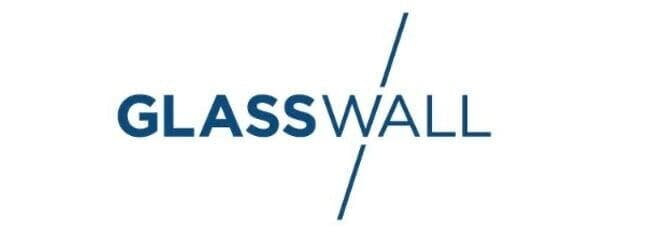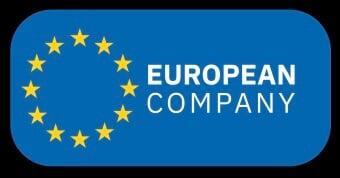GlassWall
Glasswall is a cybersecurity company that protects government agencies and organizations from malicious files with its Content Disarm and Reconstruction (CDR) technology. Unlike traditional detection-based methods, Glasswall employs a zero-trust approach, which removes the ability for malware to exist in files altogether.
Share this page on your social profile!
What is a CDR?
Glasswall’s zero-trust file protection is different. Instead of looking for malicious content, our advanced CDR (Content Disarm and Reconstruction) process treats all files as untrusted, validating, rebuilding and cleaning each one against their manufacturer’s ‘known-good’ specification.
Only safe, clean, and fully functioning files enter and leave an organization, allowing users to access them with full confidence.
Embedded Engine
It is common practice for security teams to deploy detection-based cybersecurity solutions, such as antivirus software and sandboxes, to protect their organization against file-based threats. However, this reliance on detection means no matter how complex a security solution may be, it can still only protect against what it has seen before.
Halo
Glasswall Halo is a cloud-native CDR solution that provides security teams with out-of-the-box file protection capabilities. Built on a Kubernetes architecture, it provides organizations with protection that can scale infinitely to meet demand. Glasswall Halo’s OpenAPI specification compliant design provides developer-centric web services, while open source connectors provide easy on-premises and cloud integrations.
Constellations
Glasswall Constellations facilitates controlled and secure information transfer, making it an ideal choice for organizations requiring secure collaboration and data sharing across different security domains.
Meteor
Glasswall Meteor is an easy-to-use application that can be installed locally on a user’s device. There is no need for any special training – users simply drag and drop files on-demand into the Desktop interface, or setup automatic folder synchronisation – ensuring only safe, clean, and fully functioning files enter an organization.
Clean Room
Clean Room’s browser-based design makes Glasswall CDR accessible to anyone – there is no need for any special training. Users simply drag and drop files they wish to sanitize into the browser app, and Clean Room does the rest.
Cross Domain Solutions
Glasswall CDR technology enhances Cross Domain Solutions with file transformation and protection capabilities - replacing the existing reliance on detection with a zero-trust approach. We assist government departments in complying with industry best practice initiatives, such as the NCSC’s Pattern for Safely Importing Data, the NSA’s Raise the Bar and the NIST Risk Management Framework.
Hardsec
Our CDR technology brings zero-trust file protection into the hardsec deployment mix. Our advanced filter logically verifies data structures, removes active content and ensures constructs align with a file’s manufacturer's specification. This process eliminates the risk of malicious files reaching vulnerable software applications.
File upload portals
Ingesting files from external sources and networks is a vital but risky practice for many government departments and organizations. Our CDR technology can be established at various integration points within security architecture to instantly remove known and zero-day (unknown) threats.
Cloud migration
Organizations can harness the power of our industry-leading Content Disarm and Reconstruction (CDR) technology to instantly clean files as they travel to or from a cloud environment.
Compliance
Our CDR technology enables compliance with industry guidelines such as the NCSC’s Pattern for Safely Importing Data, the NSA’s Raise the Bar Initiative and the NIST Risk Management framework by the US Department of Commerce.
Defense & Intelligence
Defense agencies across the globe deploy detection-based solutions, such as antivirus software and sandboxes, in order to protect critical data while it travels across trust boundaries or is stored on secure networks.
But a reliance on detection means no matter how complex a security solution may be, it can still only protect against what it has seen before – falling short when protecting mission critical data against zero-day threats. Glasswall has witnessed that detection-based solutions leave secure networks vulnerable without protection for an average of 18 days.
Cloud Service Providers
Our zero-trust philosophy removes security teams’ reliance on detection – replacing it with a zero-trust file protection solution that raises the bar on CDS protection.
Critical Infrastructure
Many critical infrastructure organisations still rely on detection-based solutions, such as antivirus software and sandboxes, to protect their networks against file-based threats.
However, a security infrastructure built on detection falls short because, no matter how complex a security solution may be, it can still only protect against what it has seen before.
Financial Services
Banking and finance organisations transfer critical and sensitive data across secure networks. In doing so, they not only face a rapidly changing cyberthreat landscape but also compulsory guidelines and legislation.
Many banking and finance firms rely on detection-based solutions, such as antivirus software and sandboxes, to provide protection against file-based threats that target sensitive data and critical networks. However, this reliance on detection means no matter how complex a security solution may be, it can still only protect against what it has seen before.
Speed of protection is vital for organizations to operate effectively, but detection-based solutions can take significant time to handle file-based threats, causing unwanted disruption to important workflows and customer interactions.
MSSPs
Glasswall CDR (Content Disarm and Reconstruction) provides zero-day threat protection that antivirus solutions can’t keep up with. Glasswall proactively rebuilds every file to a safe and compliant standard – automatically removing potential threats.




